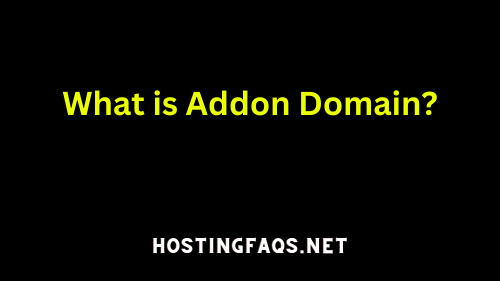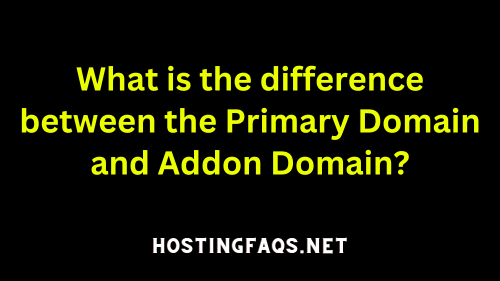What is the difference between cPanel and WHM? cPanel and WHM (Web Host Manager) are both popular web hosting control panels, but they serve different roles and are used by different types of users. Understanding the distinction between the two is important for anyone managing websites or working in web hosting.
What is cPanel?
cPanel is a web-based hosting control panel designed for website owners and end-users. It provides a user-friendly interface to manage various aspects of website and account management.
Key Functions of cPanel:
- Website Management: cPanel allows users to manage their website files, domains, subdomains, and DNS settings.
- Email Management: Users can create and manage email accounts, set up email forwarders, and manage spam filters.
- Database Administration: cPanel provides tools for creating and managing databases (like MySQL) and accessing them via phpMyAdmin.
- Software Installation: With built-in tools like Softaculous, users can easily install and manage web applications such as WordPress, Joomla, or Drupal.
- File Management: cPanel includes a file manager for uploading, downloading, and editing website files.
- Security: Users can configure SSL certificates, set up password-protected directories, and manage IP address denials.
- Monitoring: It offers access to logs for monitoring website traffic and errors.
What is WHM (Web Host Manager)?
WHM is a more powerful, server-level control panel used by web hosts, server administrators, and resellers. It provides administrative access to the back end of cPanel.
Key Functions of WHM:
- Account Management: WHM allows the creation, suspension, and deletion of cPanel accounts.
- Server Configuration: Administrators can configure global server settings, install and manage server-wide applications, and monitor server health.
- Reseller Management: WHM enables the creation and management of reseller accounts, allowing resellers to create their own cPanel accounts for end-users.
- Security: It provides more advanced security features for server monitoring, SSL certificate installation, and firewall configuration.
- Package Creation: Admins can create hosting packages with specific quotas, features, and limitations for cPanel accounts.
- Backup and Restoration: WHM offers tools for system-wide backups and restoration.
cPanel Vs WHM (Key Differences)
- User Level: cPanel is designed for end-users or website owners, while WHM is for server administrators and hosting resellers.
- Access and Control: WHM provides higher-level access and control over the server and all its cPanel accounts. cPanel offers control over a single hosting account.
- Functionality: WHM includes advanced features like account management and server configuration, which are not available in cPanel. cPanel focuses on website and individual account management.
- Scope: cPanel manages aspects of a single website or hosting account, whereas WHM oversees the entire server and can manage multiple cPanel accounts.
In summary, WHM is a tool for administrators and resellers to manage the server and multiple cPanel accounts, while cPanel is used by individual website owners to manage their specific hosting accounts and websites. WHM provides the framework within which multiple cPanel accounts can exist, and it offers broader administrative capabilities.
Best WordPress Hosting for Beginners in 2024
Hosting Company
Why To Buy
Pricing
Latest Deal

Cheapest Shared Hosting With Premium Features
Starts from $0.99/mo.
Up To 80% OFF

Affordable Hosting With Best Performance
Starts from $2.99/mo.
Up To 75% OFF

#1 WordPress Recommended Hosting With Great Features
Starts from $2.65/mo ($8.99/mo).
Up To 70% OFF
Hosting Company | Why To Buy | Pricing | Latest Deal |
 | Cheapest Shared Hosting With Premium Features | Starts from $0.99/mo. Up To 80% OFF | |
 | Affordable Hosting With Best Performance | Starts from $2.99/mo. Up To 75% OFF | |
 | #1 WordPress Recommended Hosting With Great Features | Starts from $2.65/mo ($8.99/mo). Up To 70% OFF |





